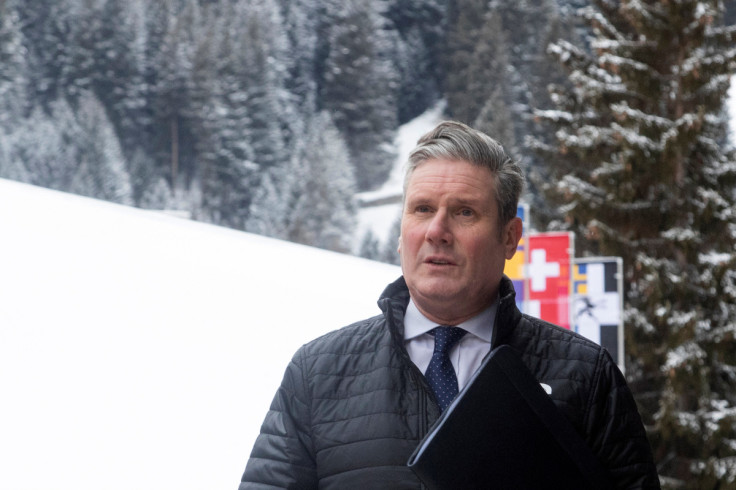Davos 2023-'Open for business' Labour slams PM Sunak no-show
British Labour Party leader Keir Starmer set out his green growth plan in Davos on Thursday and criticised British Prime Minister Rishi Sunak for not showing up at the annual meeting of the World Economic Forum.

British Labour Party leader Keir Starmer set out his green growth plan in Davos on Thursday and criticised British Prime Minister Rishi Sunak for not showing up at the annual meeting of the World Economic Forum.
Starmer, whose left-leaning opposition party is riding high in polls before an election in the next two years, told attendees at the Swiss resort that a future Labour government would pursue an "active state" ready to partner with business.
He said that Britain, gripped in a cost of living crisis that has fuelled widespread strikes, could benefit from a clean energy plan that would bring down fuel costs, create jobs and contribute towards tackling the climate crisis.
"There's huge potential for this in the UK in terms of wind and offshore wind," Starmer told a WEF panel.
Starmer said the Davos meeting was an opportunity to speak to CEOs and investors who could partner with a future Labour government to push the party's green prosperity plan, which involves establishing a new vehicle called Great British Energy.
He said Sunak's absence from the meeting had been noted by some of the people he had spoken to, a criticism that was taken up by his party colleague Rachel Reeves, who would likely fill the role of finance minister in a future Labour government.
"Somebody has got to be an ambassador for Britain and the prime minister and the chancellor are not here," she told a separate audience referring to finance minister Jeremy Hunt.
"We are here to send a message that at the next election ... the British economy will be open for business again."
Although Sunak did not attend the event, the British government did send Trade Minister Kemi Badenoch and Business Minister Grant Shapps to Davos.
And former Prime Minister Boris Johnson also made an appearance, which he used to urge Britain's allies to double down on sending military equipment to Ukraine.
RENEWABLE ENERGY
Labour's economic credibility with financial institutions and markets, which have in the past been wary of some of its policies, suffered under Starmer's more radical predecessor Jeremy Corbyn, who was popular with far-left voters but unable to oust the ruling Conservative party at the polls.
Corbyn's finance policy adviser of the time, John McDonnell, famously went to Davos in 2018 to tell the global elite that capitalism was living on borrowed time.
This time, Reeves and Starmer took part in a business roundtable hosted by U.S. bank JP Morgan with mainly energy, private equity and other financial services participants.
Starmer said Labour wants to establish a new role for fossil fuel firms in the energy transition and that there would be no new investment in oil and gas fields under a Labour government.
"What we've said about oil and gas is that there does need to be a transition. Obviously it will play its part during that transition but not new investment, not new fields up in the North Sea, because we need to go towards net zero, we need to ensure that renewable energy is where we go next," he said.
Britain has just held a new licensing round for oil and gas exploration licenses in the North Sea under the Conservatives and has refrained from joining international clubs of countries that ban new oil and gas field developments.
Reeves said Labour had been consulting with business on what they saw as regulatory and other priorities in other key sectors including life sciences, financial services and improving EU ties in the wake of Brexit.
"We've been developing these plans in tandem with business so I think they can see their fingerprints on a lot of things we are saying," she told Reuters.
For daily Davos updates in your inbox sign up for the Reuters Daily Briefing here.
Copyright Thomson Reuters. All rights reserved.






















